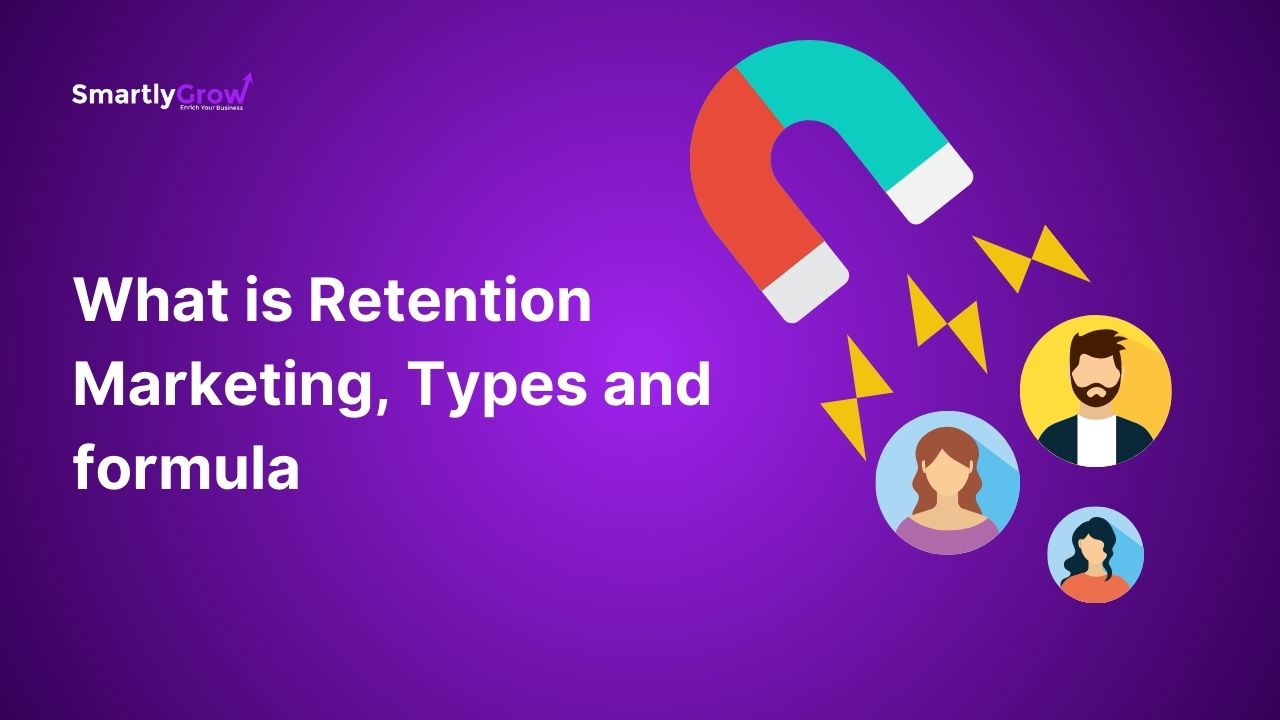What is Retention Marketing, Types and formula
What is Retention Marketing?
Retention marketing is a crucial aspect of any business’s marketing strategy, as it helps to keep customers loyal and prevent them from switching to competitors. In the digital age, retention marketing has become an increasingly important part of a company’s overall digital marketing efforts.
There are several different types of retention marketing that businesses can utilise in their digital marketing efforts. One common approach is loyalty programs, which reward customers for their continued patronage. These programs can take many forms, such as points systems, exclusive discounts, or VIP access to events and promotions.
Another approach to retention marketing is personalised messaging, which involves using data and customer insights to deliver customised, targeted messaging to individual customers. This can include personalised email campaigns, social media posts, or personalised product recommendations on a company’s website.
In addition to these tactics, there are also several tools that businesses can use to support their retention marketing efforts. These include customer relationship management (CRM) software, which helps businesses to track and manage customer interactions, and marketing automation tools, which can help to streamline the process of sending personalised messages to customers.

Formula of Retention marketing:
- Customer Retention Rate: This formula calculates the percentage of customers who continue to do business with a company over a given period of time. It is calculated as the number of customers at the end of the period, divided by the number of customers at the beginning of the period, multiplied by 100. For example, if a business starts the year with 100 customers and ends the year with 80 customers, its customer retention rate would be 80%.
- Customer Churn Rate: This formula measures the percentage of customers who leave a company over a given period of time. It is calculated as the number of customers who churned, divided by the total number of customers, multiplied by 100. For example, if a business starts the year with 100 customers and loses 20 customers, its churn rate would be 20%.
- Customer Lifetime Value: This formula estimates the total value that a customer will bring to a business over the course of their relationship with the company. It is calculated by multiplying the average purchase value by the number of purchases per year, and then multiplying that number by the average customer lifespan. For example, if a business’s average purchase value is $50, its customers make an average of 2 purchases per year, and their average lifespan is 5 years, their customer lifetime value would be $500.
4. Net Promoter Score: This formula measures customer loyalty and satisfaction, and is calculated by asking customers how likely they are to recommend a company’s products or services to others on a scale of 0-10. Customers who give a score of 9 or 10 are considered “promoters,” while those who give a score of 0-6 are considered “detractors.” The Net Promoter Score is calculated by subtracting the percentage of detractors from the percentage of promoters.
By using these formulas, businesses can track the success of their retention marketing efforts and identify areas for improvement.
In conclusion, retention marketing is a vital aspect of any business’s marketing strategy, as it helps to keep customers loyal and prevent them from switching to competitors. By utilising tactics such as loyalty programs, personalised messaging, and the right tools, businesses can effectively retain their customers and drive long-term growth. By using key metrics such as customer retention rate, customer churn rate, customer lifetime value, and Net Promoter Score, businesses can track the success of their retention marketing efforts and identify areas for improvement. Overall, a strong retention marketing strategy can help businesses to build lasting relationships with their customers and drive sustainable growth


